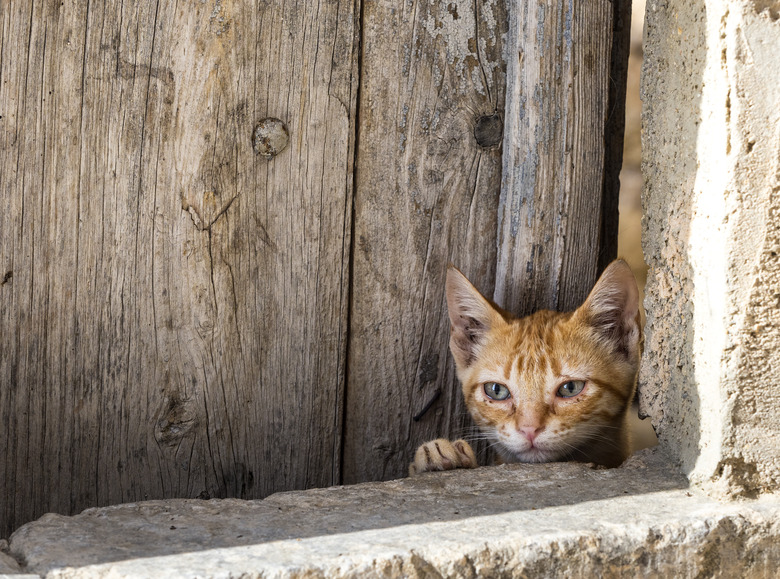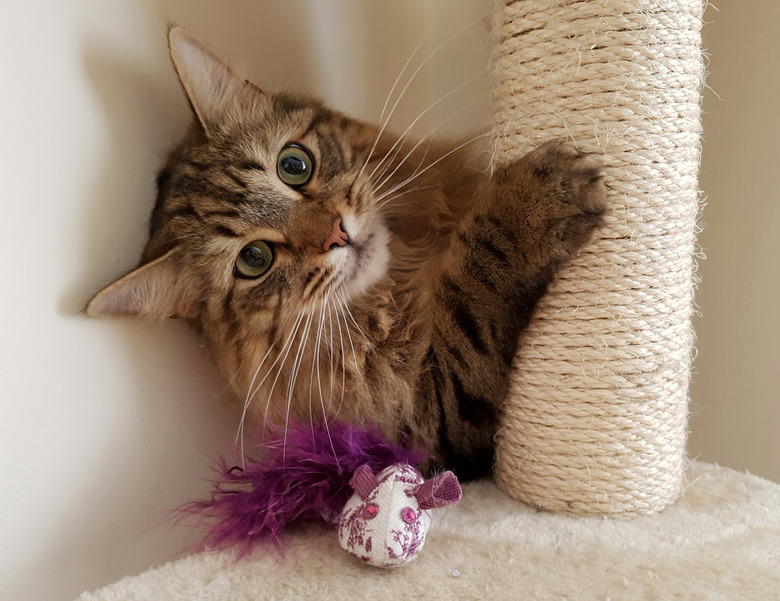Is Your Kitty Alone Often? Look For These Signs That A Cat Is Lonely
Cats have a reputation for being wildly independent, but do cats get lonely? These furry felines seem to have no problems doing their own thing like napping solo in the sun for hours, but they also undoubtedly love spending time with us and do get lonely. Dogs communicate that they missed us while we were gone and are happy to finally see us again. But what about cats?
Do cats get lonely?
Do cats get lonely?
Although your cat is probably more independent than most dogs you know, she has surely created a bond with you and loves your company. Cats look to their humans or other animals for companionship and interaction.
Cats and dogs alike require stimulation through play, exercise and mental challenges. Without this stimulation, cats can actually become depressed. If a cat is left alone for too long, she will not only become lonely, but may also be at risk for major health problems like depression, which can negatively affect the feline immune system.
Signs of a lonely cat
Signs of a lonely cat
Symptoms of cat separation distress manifest themselves in numerous fashions, some more harmful and pronounced than others, and can lead to unwanted behaviors such as:
Excessive vocalizations or demanding behaviors: Is your kitty seeking more attention than usual? This could be a coping phenomenon brought on by the stress of isolation.
Grooming issues: Cats are clean and groom themselves often, but excessive grooming is often a sign that your cat is suffering from separation anxiety.
Destructive behavior and aggression: If your kitty is not properly stimulated or engaged with other living beings, she can turn destructive, finding inappropriate ways to relieve her boredom. You may notice scratches on the furniture, knocked over plants or urine stains on your carpet.
Lethargy: Cats spend a ton of time napping, dozing and lounging, but if you notice them sleeping more than usual, or at times of the day when they're normally awake, then your cat may be suffering from melancholy.
Litter-box issues: Cats who are lonely may act out by deciding to relieve themselves in areas other than their litter boxes such as laundry baskets or the corners of rooms. However, there may be more going with cats who don't use their litter boxes. Feline lower urinary tract disease (FLUTD) is a group of disorders and diseases that affect the urinary tract and colon, such as irritable bowel disease. These disorders can lead to inappropriate elimination.
Eating irregularities: Some cats may stop eating when they become lonely or depressed, while others will overeat. Changes in eating habits can also be a symptom of other health issues. It's best to take your cat to the veterinarian to rule out any serious illnesses.
It's important to make sure your home is a fun and interesting place for your cat when she is left alone. Make toys and scratching posts available. Move curtains to the side so your cat can perch on the windowsill and observe the outside world. You can even leave a DVD designed for cats on replay for her to watch!
Do cats need feline companionship?
Do cats need feline companionship?
Cats do not necessarily need a kitty sibling to prevent loneliness and boredom. They are able to be the lone animal in a household, but some cats do respond well to companions. Was your cat raised in a happy litter, or was she taken from her family early and re-homed? The longer your cat spent with her litter, the more likely she is to be social as an adult.
Having a companion cat for your kitty is a great way to battle boredom, especially if you are away from the home for long periods of time. Younger cats usually find it easier to adjust to new siblings in the home, and many appreciate having someone to play and interact with. If you adopt a second cat as a companion, choose a friend that is around the same age and who has a similar personality. This will increase the likelihood that the two will get along. Don't forget to spay or neuter your kitties to prevent litters or behavioral problems.
Are cats lonely at night?
Are cats lonely at night?
Cat owners can relate to hearing their feline friends walk the halls of their homes at night while the humans slumber. Cats have amazing vision, and they don't require much light to see, which makes nighttime a great opportunity for them to roam and explore their surroundings with ease.
Your cat is probably not lonely at night if you are engaging with her enough during the day. She may take that time to graze by herself, but shouldn't feel lonely if she knows you will be there to play with in the morning. She may even make a stop in your bed for a cuddle. Spending time with you, even if you're sleeping, will make her feel safe and know that she is not alone.
Can cats be left alone?
Can cats be left alone?
We know that dogs miss us when we're gone, but do our cats miss us as well, or are they just fine spending a day alone? Each cat is different, but check for the signs of a lonely cat to assess the situation. If you return from work to find a home that has been torn apart, chances are your cat is missing you. If your cat has places to climb and hide, easy access to her food and water, and plenty of toys and scratching posts around, she'll most likely be just fine while you're away during the day.
Your cat loves you and enjoys your company so she will miss you when you're at work, but this shouldn't lead to severe loneliness if the proper precautions are set into place.


